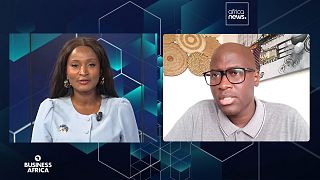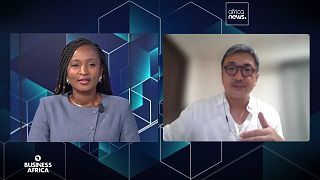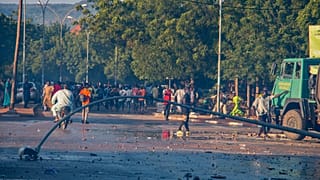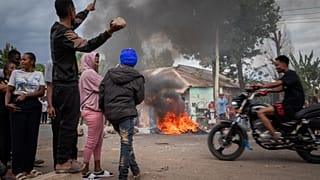Business Africa
The Democratic Republic of Congo holds the world’s largest reserves of cobalt, a mineral vital for electric vehicle batteries and clean energy technologies. But Kinshasa is sending a clear message: it will no longer be a passive supplier of raw materials.
President Félix Tshisekedi’s government is demanding that mineral deals translate into tangible development, local value addition, and fairer profits. This stance has complicated negotiations with the United States, which is racing to secure cobalt supplies amid intensifying competition with China.
Speaking from Kinshasa, Djimpe Landry, a partner at Innogence Consulting, noted that the stakes are high:
- “Congo must prioritize clauses that guarantee local industrialization and job creation,” he explained.
- The challenge, however, lies in balancing foreign investment with national sovereignty over resources.
- With China, the U.S., and others vying for access, Congo’s negotiating power has never been stronger—yet the risk of exploitation remains real.
Tunisia’s Biotech Startup Turns Blue Crab Waste into Innovation
On Tunisia’s Mediterranean coast, a different sustainability story is unfolding. Once considered a pest that disrupted fishing communities, the invasive blue crab is now at the heart of a groundbreaking biotech venture.
A Tunisian startup has developed a way to process more than 5,000 tonnes of blue crab waste into pharmaceutical-grade chitosan, a versatile biomaterial. Chitosan is biodegradable and has applications in medicine, agriculture, and even as a potential substitute for plastics.
By harnessing “green chemistry,” the company is not only tackling an ecological menace but also positioning Tunisia as a hub for sustainable biotech innovation in the Global South.
Africa Bets on Sustainable Fertilisation for Food Security
Meanwhile, across Africa’s farmlands, a quiet revolution is taking root. For decades, poor soil fertility and limited access to fertilisers have constrained agricultural productivity. Now, African governments and investors are championing sustainable fertilisers designed to boost yields while safeguarding the environment.
Unlike Europe’s over-reliance on chemical fertilisers, which led to soil degradation and pollution, Africa is embracing agroecological solutions. These new-generation fertilisers naturally fix nitrogen into the soil, reducing dependence on costly imports and harmful chemicals.
Wlodek Bogucki, an investor told us that the approach could unlock Africa’s potential as a global food powerhouse: “If scaled, sustainable fertilisation could not only feed Africa but also transform the continent into a key supplier for the world.”






![DRC: Stability on paper, Mining rush in reality? [Business Africa]](jpg/320x180_cmsv2_5a5093ce-8cab-5f82-a735-bda26224d43f-9362464.jpg)






11:07
Infrastructure: From foreign loans to domestic capital [Business Africa]
Go to video
Nigeria, South Africa removed from global money-laundering watchlist
02:06
DRC: deadly fire ravages Bukavu neighborhood, claiming 14 lives
11:06
Moonshot 2025: Can Africa's Startups Challenge Global Tech Giants?{Business Africa}
01:00
Pix of the Day: October 22, 2025
00:28
DRC begins countdown to end of Ebola outbreak as last patient recovers